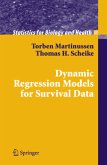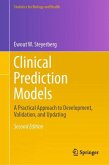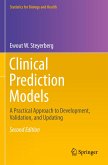This unique textbook presents the field of modern epidemiology as a whole; it does not restrict itself to particular aspects. It stresses the fundamental ideas and their role in any situation of epidemiologic practice. Its structure is largely determined by didactic viewpoints.
Epidemiology is the art of defining and investigating the influence of factors on the health of populations. Hence the book starts by sketching the role of epidemiology in public health. It then treats the epidemiology of many particular diseases; mathematical modelling of epidemics and immunity; health information systems; statistical methods and sample surveys; clinical epidemiology including clinical trials; nutritional, environmental, social, and genetic epidemiology; and the habitual tools of epidemiologic studies. The book also reexamines the basic difference between the epidemiology of infectious diseases and that of non-infectious ones.
The organization of the topics by didactic aspects makes the book ideal for teaching. All examples and case studies are situated in a single country, namely Vietnam; this provides a particularly vivid picture of the role of epidemiology in shaping the health of a population. It can easily be adapted to other developing or transitioning countries.
This volume is well suited for courses on epidemiology and public health at the upper undergraduate and graduate levels, while its specific examples make it appropriate for those who teach these fields in developing or emerging countries.
New to this edition, in addition to minor revisions of almost all chapters:
- Updated data about infectious and non-infectious diseases
- An expanded discussion of genetic epidemiology
- A new chapter, based on recent research of the authors, on how to build a coherent system of Public Health by using the insights provided by this volume.
Epidemiology is the art of defining and investigating the influence of factors on the health of populations. Hence the book starts by sketching the role of epidemiology in public health. It then treats the epidemiology of many particular diseases; mathematical modelling of epidemics and immunity; health information systems; statistical methods and sample surveys; clinical epidemiology including clinical trials; nutritional, environmental, social, and genetic epidemiology; and the habitual tools of epidemiologic studies. The book also reexamines the basic difference between the epidemiology of infectious diseases and that of non-infectious ones.
The organization of the topics by didactic aspects makes the book ideal for teaching. All examples and case studies are situated in a single country, namely Vietnam; this provides a particularly vivid picture of the role of epidemiology in shaping the health of a population. It can easily be adapted to other developing or transitioning countries.
This volume is well suited for courses on epidemiology and public health at the upper undergraduate and graduate levels, while its specific examples make it appropriate for those who teach these fields in developing or emerging countries.
New to this edition, in addition to minor revisions of almost all chapters:
- Updated data about infectious and non-infectious diseases
- An expanded discussion of genetic epidemiology
- A new chapter, based on recent research of the authors, on how to build a coherent system of Public Health by using the insights provided by this volume.









